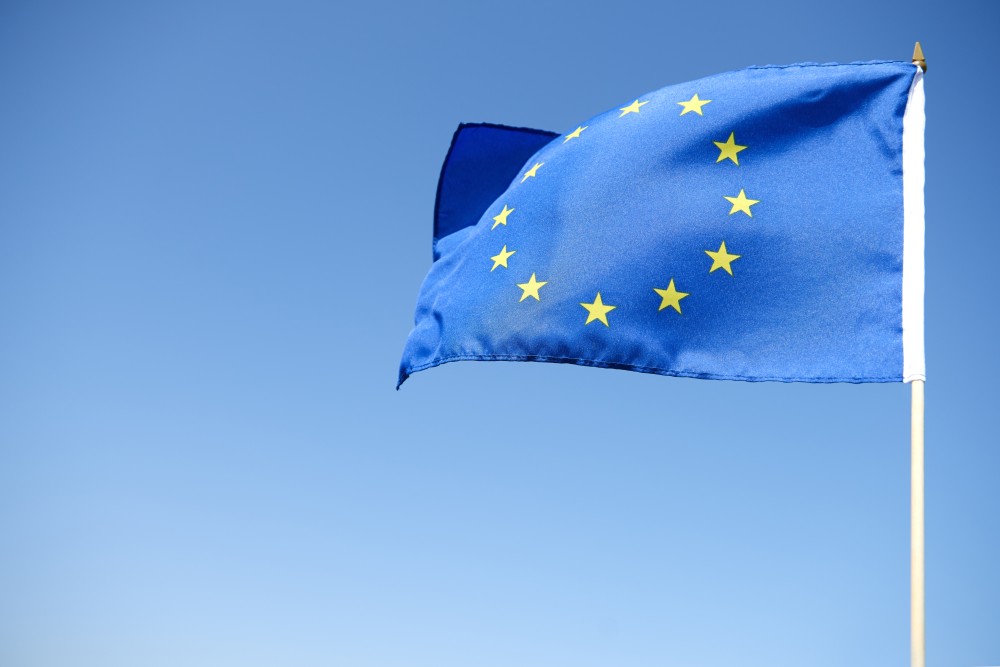How Major Tech Regulations Are Set to Reshape the Global Video Game Industry

By Chris Hewish, President of Xsolla
The global video game industry, once largely unregulated, now finds itself at the centre of sweeping digital legislation. With the UK’s Online Safety Act and the European Union’s Digital Markets Act (DMA) coming into force, developers, publishers, and platform holders are facing a recalibration of how they build, market, and monetise games. For players, it could mean more choice and better protections. For the industry, it’s a time of reckoning.
Monetisation Under the Microscope
Microtransactions and loot boxes have long been controversial. What began as optional cosmetic purchases have evolved into a core revenue stream for many developers. But under the UK’s Online Safety Act, which aims to make the internet safer - particularly for children - this business model is being put to the test.
The UK’s Online Safety Act places new responsibilities on platforms to protect minors from content and features that could pose a risk of harm. While the Act does not explicitly regulate monetisation mechanics, concerns have been raised about practices such as limited-time offers or reward loops in games, which may be scrutinised in the broader context of user safety and online harms. Developers targeting younger audiences now have to reassess how in-game purchases are presented, or risk falling foul of regulators.
The European Union’s DMA also intersects here. By categorising certain app store operators as “gatekeepers”, it forces them to allow alternative payment systems. That means developers may be able to avoid up to 30% of fees taken by app stores by offering their own payment methods. In practice, this could open the door to new monetisation strategies - though not without challenges.
App Store Compliance: A Shifting Power Dynamic
Apple and Google have traditionally shaped the landscape of mobile gaming through their app store policies. However, the DMA may introduce changes that could rebalance this dynamic. The act requires gatekeepers - platforms designated under the DMA based on specific quantitative and qualitative criteria - to comply with its obligations. It’s a monumental change that could redefine distribution in the gaming sector.
However, compliance isn’t simple. Developers and platform holders must now navigate a patchwork of regulatory obligations across different regions. Regulators may examine aspects like app updates, data handling, age verification, and payment processing as part of broader oversight under the DMA and the UK Online Safety Act. It’s a logistical challenge - but also an opportunity for those nimble enough to adapt.
The Rise of the Web Shop
One of the most immediate shifts driven by these regulations is the renewed interest in web shops - online storefronts hosted outside of traditional app ecosystems. While previously limited by app store policies, web shops are now being re-evaluated as a viable distribution channel, particularly within the EU where the DMA introduces new requirements. In other regions, their role continues to evolve within the bounds of existing platform rules.
Many well-known household games have already embraced this route, encouraging users to purchase in-game currency through web-based portals. Under the DMA, platforms like Apple and Google are required - within the EU - to permit developers to include links to external offers. This has opened up new opportunities for developers to promote web shops more openly, though some platform-specific restrictions may still apply. This shift doesn’t just cut costs; it also gives developers more control over the customer experience.
For players, this may mean better deals and more transparent pricing. But it also adds complexity. Managing accounts and purchases across multiple platforms and storefronts could become confusing. That’s where trust becomes critical - users need reassurance that external web shops are safe and secure.
One of the most immediate shifts driven by these regulations is the renewed interest in web shops - online storefronts hosted outside of traditional app ecosystems. While previously limited by app store policies, web shops are now being re-evaluated as a viable distribution channel, particularly within the EU where the DMA introduces new requirements.
The UK’s Online Safety Act is Changing the Game on Safety and Access
While the European Union’s Digital Markets Act redefines distribution, the UK’s Online Safety Act is recalibrating how games operate at a fundamental level - especially for under-18s.
At its core, the Online Safety Act requires online services that are likely to be accessed by children to implement appropriate measures for age verification, content filtering, and moderation. In the context of gaming, features such as multiplayer chat, user-generated content, and avatars may be subject to regulatory oversight, depending on how they are used and the risks they present as defined by the Act. It’s no longer just about PEGI ratings - it’s about proactive, ongoing safeguarding.
There are many known games that are now under pressure to demonstrate that they’re not just safe “at launch”, but dynamically responsive to new risks. Studios must now carry out formal risk assessments - flagging features that could expose minors to harm - and publish clear reporting mechanisms for players.
With Ofcom now holding enforcement powers - including fines up to £18 million or 10% of global revenue - noncompliance is no longer an option. For executives, there’s even personal legal exposure in serious cases involving child harm.
In the longer term, some argue the Online Safety Act could professionalise and mature gaming environments - removing toxic behaviour, encouraging responsible monetisation, and building trust. But in the short term, it’s creating turbulence, uncertainty, and a growing digital divide between regions.
A New Era for Gaming
These regulations are not just bureaucratic red tape - they’re a signal that the digital wild west is over. The industry is maturing and with that comes oversight. While compliance will be painful for some, others see a more open and competitive future.
It’s a landscape in flux, but one thing is clear: video game companies can no longer afford to treat regulation as an afterthought. In this new era, how games are sold may become just as important as how they’re played.













